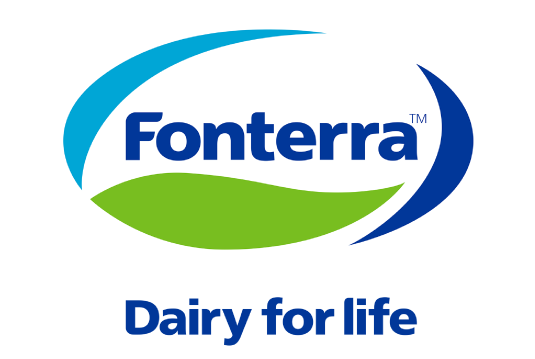A new phase begins in Fonterra seaweed trial aiming to reduce on-farm emissions
In 2020, we entered a partnership with Sea Forest to see if using Asparagopsis seaweed as a supplement feed for dairy cows could reduce greenhouse gas emissions. This trial now enters its next phase including a new agreement allowing Fonterra farmers first access to this potential new seaweed solution.
At Fonterra, we understand that climate change is one of the most pressing challenges of our time.
Right through our supply chain, we’re continuously looking for more efficient and environmentally friendly ways to produce and distribute our dairy foods. We believe there will be no single solution to the methane challenge, so we are investigating a number of different options.
Since then, we’ve conducted one of the only trials of feeding Asparagopsis to dairy herds in the southern hemisphere. It’s been quite the journey to get to where we are today, and we are now expanding the trial to include more farms.
Along with this new phase, is a new agreement with Sea Forest allowing all Fonterra farmers globally to get first access to the Asparagopsis solution.
This means if the trial proves successful and the product is ready to go, Fonterra farmers will be at the front of the queue.
Fonterra General Manager of Sustainability APAC Jack Holden says our grass-fed farming model makes Fonterra one of the most carbon efficient producers of dairy in the world. “However, we have an aspiration to be net zero by 2050 and are investing in R&D and partnerships to help find a solution to reducing methane emissions.”
CSIRO research has shown that Asparagopsis seaweed has the potential to reduce emissions by over 80 per cent in laboratory trials, and while Fonterra understands the reductions will vary out of the lab, all reductions count.
“As with all methane solutions we’re trialling, what we need to find out is whether we can use this supplement in a way that is safe for cows, safe for consumers and to ensure that there is no impact on milk taste or quality,” says Jack Holden.
Our access to leading dairy farmers also gives Fonterra a unique opportunity to test possible solutions and get them to scale much faster.
We have an aspiration to be net zero by 2050 and are investing in R&D and partnerships to help find a solution to reducing methane emissions.
The Asparagopsis seaweed trial has taken place on Richard Gardner’s Annandale farm in the Midlands of Tasmania. It was chosen not only because Tasmania has a suitable climate, but Richard has a well-established flexible feeding and milking system.
Richard has long been into sustainability on farm, and when the opportunity came up to be involved in the trial, he jumped at the opportunity.
“Asparagopsis seaweed looks like it could be the first viable option we have had to achieve major emission reductions, and although it’s early days, it could potentially be part of the future sustainability of our industry,” says Richard
On Richard’s farm, 900 of his dairy cows have been fed small amounts of the seaweed supplement.
During the trial, we extensively tested milk for seaweed residues, and there haven’t been any red flags at any stage that have caused us to suspend the trial. We have also focussed heavily on animal health concerns and again what we see is promising at each stage.
We also compared milk production with cows who were not fed the seaweed supplement, and we found that production is unchanged.
Another focus of the trial has been working out how practical it is to use this supplement as part of normal operations, which Jack Holden says is “critical because it needs to be easy to implement and beneficial for farmers if we want it to be widely adopted.”
Based on these outcomes, we're now ready to take the trial to the next stage, where we will expand it to include multiple farms, and our commercial partner Sea Forest is ready and is set to lift its production.
Sea Forest is one of a few licenced producers of Asparagopsis for cattle feed. The licences are issued by Future Feed which is the commercial joint venture that owns the intellectual property.
Sea Forest CEO and Founder Sam Elsom says last year the company bought an additional 30ha farm as it dramatically increases its production of the seaweed supplement.
“Asparagopsis is a common seaweed native to the waters of Tasmania and New Zealand, and we’re the first in the world to cultivate it at a commercial scale through both marine and land-based aquaculture.
“We needed a food industry partner to help us take this to a commercial scale, and we partnered with Fonterra because of its commitment to sustainability and innovation.
“We're looking forward to working with Fonterra on the next phase, and although we’re still in trial phases, we believe this has potential,” says Sam.
Our Asparagopsis seaweed trial in Australia is part of our Co-operative’s wider efforts to tackle emissions and our aspiration to be Net Zero carbon by 2050.
The Co-operative is currently carrying out a number of other trials in this area including:
Tapping into its large collection of dairy cultures to create new fermentations we’re calling Kowbucha™, which could inhibit the methanogens that create methane in cows.
Working with Royal DSM, a global science-based company, to test whether DSM’s feed additive product Bovaer®, which reduces methane emissions from cows by over 30% in non-pasture-based farming systems, can do the same in New Zealand’s pasture-based farming systems.
With MPI and DairyNZ, expanding a promising trial with Nestlé to include plantain in a cow’s diet to reduce the amount of nitrogen produced, reducing carbon emissions and improving freshwater quality.

